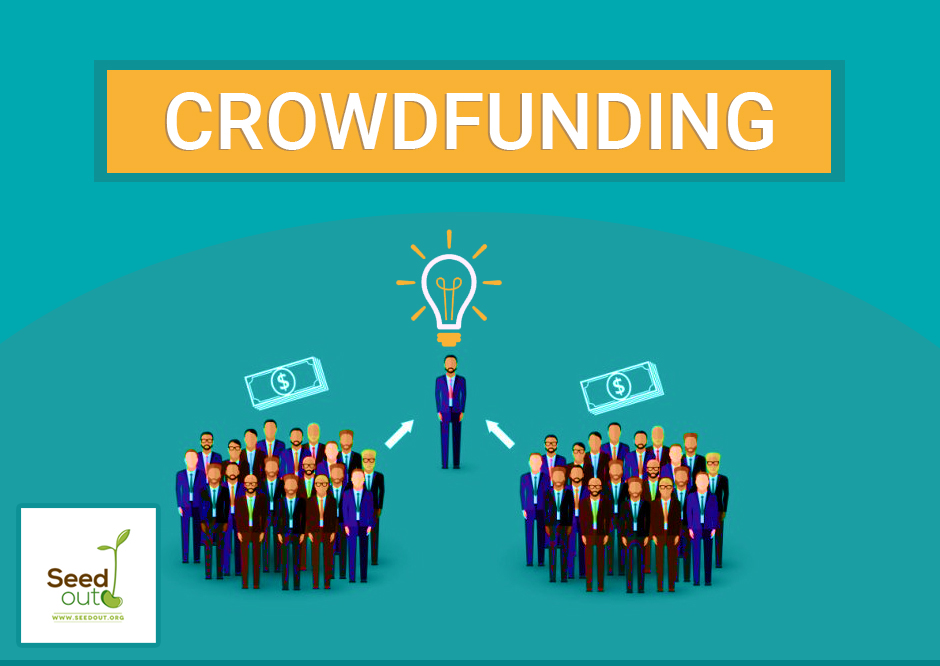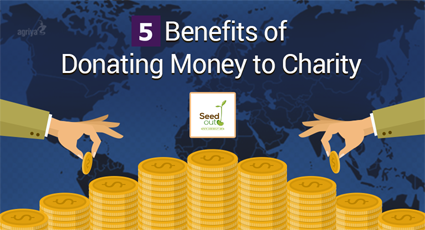14 Best Crowdfunding Sites for Startups 2022
Crowdfunding is one the most popular methods of obtaining funding for startups and new businesses. By using crowdfunding platforms entrepreneurs can obtain startup capital in various amounts, often in exchange for products or shares. If you're thinking about crowdfunding your startup, but not sure where to begin, you're in the right place. In this article we've reviewed the best crowdfunding sites for entrepreneurs and startups, including pre-seed creative startups, high-growth tech startups, and everything in between.
Best Crowdfunding Platforms for Startups
Crowdfunding is an increasingly popular method of funding new ventures. In addition to traditional venture capital firms, individuals can also invest in startup companies through online platforms such as Kickstarter and Indiegogo. These platforms allow entrepreneurs to raise funds from a large number of people who may not otherwise consider investing in a company. By allowing users to fund projects they believe in, these platforms create a sense of community among investors and entrepreneurs alike.
Best Crowdfunding Websites of 2022:
| Seedout | Patreon |
| StartEngine | Wefunder |
| Indiegogo | IFundWomen |
| Kickstarter | GoFundMe |
| Fundable | Crowdcube |
| SeedInvest | MicroVentures |
| CircleUp | Mightycause |
1. Seedout
We help people who aspire to start their own businesses access the tools, training and support they need to succeed. A single donation can change someone’s life by giving them a source of sustainable income. With our innovative micro financing model and robust micro funding platform you can ensure your donation goes directly to the beneficiary of your choice. We don’t give out hard cash, instead we go straight to helping people set up their own businesses. Our aim is to ensure that your donation actually changes someone’s life for good.
How does it work?
We believe in helping people start businesses in places where they've had no access to such opportunities before. By donating to our cause, you're not only supporting entrepreneurs in developing countries who need your support, but you get to benefit from the knowledge and experience of these successful individuals. When you donate, you'll also gain an opportunity to learn about how to start your own business.
Seed Out is more than a charity
We provide entrepreneurial solutions that empower the underprivileged which enables sustainable outcomes. Our core team creates an effective twofold impact on the entrepreneurs through.
- Micro-financing for entrepreneurship
- Skills development and training
Seed Out’ s team takes back recoveries on easy installments without any administrative fees. The recovered installments are gathered into the revolving fund to raise further entrepreneurs. According to the world bank in pakistan, 90 percent of the workforce is highly entrepreneurial but it’s estimated that 80 percent of them can not apply for a traditional loan.
Our concept is working towards solving this inequality by providing entirely 100 percent interest free loans. Seed out is the solution to the problem of all those people living within the vicious cycle of poverty. We currently operate in the underserved areas and would like to expand more.
Our focus
Women and differently-able persons are a priority for loanee's interest free micro loans. Equitable treatment is given to all loanees irrespective of gender, caste, religion or race. Most of loanee's approach us through our field sales and door to door mobilization campaigns. The field officers also identify exceptionally needy loanees on the field.
2. StartEngine
Pricing: 7%–12% platform fee based on method of investment and fees associated.
About
StartEngine Crowdfunding Inc. has become a leading player in the US equity crowdfunding market. According to its website it has raised over $450M through a combination of Regulation D and Regulation A+ crowdfunding. This funding has been divided between over 500 startup offerings made available on its platform to date.
Best For
- Startups with a long-term vision
- Growth-focused startups
Pros
- The platform has an excellent reputation in the equity crowdfunding space
- The startup founder is in control of their offering
- Funding can be immediately collected after reaching $12,000
Cons
- Only US-based startups qualify
- Maximum funding amount set at $50 million under Regulation A+ and $1.07 million under Regulation crowdfunding
- Minimum funding goal of $10,000 applies
3. Indiegogo
Pricing: 5% platform fee
About
Since its launch in 2008, Kickstarter has become one of the world’s leading funding platforms, with over 20,000 projects successfully funded monthly. In total, Kickstarter’s capabilities, versatility, and functionality are unmatched. Plus, as one among the largest funding platforms available worldwide, campaigns have access to an extensive array of investment options.
Best For:
- Startups overall
- Early-stage startups
- Startups looking to reach a global audience
Pros
- Services are available in 235 countries and territories worldwide
- Flexible requirements to start campaigns on the platform
- Able to connect with Facebook and Google to better promote campaigns
Cons
- In addition to the site’s 5% platform fee, there is a separate third-party payment processing charge.
- Large number of campaigns on the platform
4. Kickstarter
Pricing: 2.9% payment fees; 3% + $0.20 per pledge; 5% + $0.05 per pledge under $10
About
KickStarter is one of the most common and widely used crowdfunding sites. Understandably so, because the site has been around for over a decade and currently has over 15 million project backers in count.
Best For:
- Tech startups
- Art and design startups
- US, European, and Australia-based startups
Pros
- Kickstarter is a trusted, well-known platform
- Accepted campaigns have access to over 15 million project backers globally
- Services are available in six countries around the globe
Cons
- Highly competitive, meaning the approval process for projects can be difficult
- All campaigns must fall under one of Kickstarter’s pre-selected categories
5. Fundable
Pricing: 3.5% payment fee + $0.30 per pledge; 5% platform fee for successful campaigns only
About
Fundable offers both Equity Crowdfunding and Rewards Based Crowdfunding for startups on the platform, unlike many other crowdfunding platforms, such as Kickstarter, Indiegogo, GoFundMe, and RocketHub. Unlike these platforms, Fundable does not simply take a percentage of your earnings; instead, users can pay a monthly subscription fee and create campaigns to raise funds as long as they are accepted by Fundable. This option is highly beneficial for successful fundraising efforts.
Best For:
- Tech startups
- High-growth companies
- US-based startups
Pros
- Equity crowdfunded campaigns are able to keep funding if a goal isn’t reached.
- Low monthly flat fee for subscribers
- Access to additional resources
Cons
- Startups cannot keep the funding they receive if their goal isn’t met unless they partake in equity crowdfunding.
- You are required to pay the platform fee whether your campaign is successful or not.
- US-based startups only
6. SeedInvest
Pricing: 7.5% placement fee + 5% equity fee
About
A startup is a company that is just starting out, so it needs lots of money to get off the ground. SeedInvest was founded in 2012 to help entrepreneurs raise funds for their new companies. Since then, it has helped thousands of businesses get started. You can read about each business' experience on SeedInvest's blog.
Best For
- Pre-seed startups
- Early-stage startups
- Tech startups
Pros
- Startups looking to connect with angel investors and venture capital firms have the opportunity through this platform.
- Unsuccessful campaigns are not responsible for paying fees
- Access to a wide network of investors and resources
Cons
- High fees for using the platform
- Strict vetting process
7. CircleUp
Pricing: Commission varies depending on the amount raised
About
CircleUp specializes in online lending, making it ideal for small businesses. The company was founded in 2010 and has helped over 300 entrepreneurs raise $2 billion in loans.
Best For
- High-growth startups
- Early-stage startups
- Consumer product startups
Pros
- Only accredited investors are able to fund projects on the platform
- Campaigns have a high success rate
- Due to a low acceptance rate for campaigns, those that are accepted have a better chance of reaching their funding goals
Cons
- Application process is extremely strict
- Only product-centric startups are able to utilize the platform
8. Patreon
Pricing: 5%–12% platform fee depending on subscription plan
About
Since its inception, Patreon has been used to fund projects and support startups from fans, family, friends, and supporters. In addition to being a popular crowdfunding platform, Patreon also offers an online marketplace where users can buy products, services, and merchandise from artists and creators they love.
Best For
- Art startups
- Lifestyle startups
- Small business
Pros
- Users can set up monthly subscriptions
- Flexible funding options makes the platform ideal for creative professionals
- Available integrations make promoting campaigns easy
Cons
- High platform fees
- Not ideal for high growth startups
9. Wefunder
Pricing: 7.5% platform fee
About
Wefunder is a crowdfunding platform where startup founders can raise money from people interested in investing in their business. Investors get shares in the company instead of receiving cash. Alternatively, companies can offer debt financing through the website which means they will be obligated to pay back the amount raised. When it comes to startups expecting to receive VC funding because of their rapid growth, Wefnder is the absolute best crowdfunding site out there.
Best For
- High-growth startups
- Tech startups
- Equity-based startups
Pros
- High success rate of roughly 75%
- Access to additional resources for legal help, crowdfunding support, and more
- WeFunder isn’t super exclusive despite being an equity crowdfunding platform.
Cons
- Due to it being an equity crowdfunding platform, there are increased legal requirements.
- This is not a platform for small businesses or lifestyle startups
- There are more rules and regulations to participate in crowdfunding on this site
10. IFundWomen
Pricing: 5% platform fee
About
IFundWomen is an online fundraising website designed to help female entrepreneurs raise funds for their startups. The site offers a variety of tools and services to help entrepreneurs build campaigns around their ideas and projects. These include everything from the ability to create custom landing pages to a dedicated team of professionals who can assist with campaign strategy. Entrepreneurs can also take advantage of the site’s grant program, which helps them get funding for their businesses.
Best For
- Women-led startups
- Purpose-driven startups
- Food and beverage startups
Pros
- Great for women-led businesses
- Provides additional support beyond funding
- Members can keep all the money they earn from campaigns
Cons
- Typically lower amounts of capital raised on the platform
- Lack of statistics covering success rates
11. GoFundMe
Pricing: 2.9% payment fee + $0.30 per pledge; 0% platform fee
About
While not always synonymous to startups, GoFundMe can be a great platform for social enterprises and nonprofits who want to make the world better and need money to do so. Startup companies that are founded to help others, including medical, animal, and environmental startup companies, are all welcome here!
Best For
- Social entrepreneurs
- Nonprofits
- Eco-friendly startup
Pros
- 0% platform fee to use GoFundMe services
- Whether or not you reach your goal, you are able to keep the funding donated to your campaign.
Cons
- Reportedly low success rate for campaigns due to saturation
- Strict requirements for campaigns on the platform meaning most startups will not qualify
12. Crowdcube
Pricing: 7% platform fee + 0.75%–1.5% completion fee
About
Crowdcube is one among the best equity crowdfunding platforms in UK. It allows investors of any kind to invest in either a fixed return or an equity based model. One can find about 15-20 companies listed on the platform. Clicking on each company will provide additional details. Crowdcube is one among those platforms that have successfully managed to attract both retail and institutional investors. It's a great way to diversify your portfolio.
Best For
- Early-stage startups
- Growth startups
- England-based startups
Pros
- Access to high reward startups with low minimum contribution amount
- Platform handles all paperwork and tax certificates
- Businesses required to give quarterly updates to investors
Cons
- Must be resident of the UK or a country where you can legally receive financial promotions
- Must be qualified as an educated investor
13. MicroVentures
Pricing: 5% commission fee, 2% equity fee, $1,000 or 35 basis points for escrow fee
About
MicroVentures, Inc., also known as MVC, is an equity-based fundraising platform that specializes in facilitating investments in early-stage technology companies. Founded in 2007, the company was one of the first online platforms to offer equity crowdfunding to individuals who were not already accredited investors. The company’s goal is to provide access to capital for entrepreneurs through a simple, affordable process. In order to do so, the company offers a range of investment options, including pre-seed investing, seed investing, Series A investing, Series B investing, and Series C investing.
Best For
- Early-stage startups
- Late-stage startups
- Tech startups
Pros
- Available to both accredited and non-accredited investors
- Small minimum investment of $100 required
- Comprehensive due diligence for companies that apply
Cons
- Very small amount of investment opportunities available
- Not many educational resources for investing
14. Mightycause
Pricing: 1.2% platform fee + $0.29 processing rate
About
MightyCause is a fundraising platform for nonprofits that provides more than just fundraising tools. It also includes a donor database, CRM, marketing, and more so that nonprofits can get everything they need under one roof.
Best For
- Nonprofits
Pros
- Offers extensive free resources for non-profits
- Lower rates of commission for members
Cons
- No potential for high returns on investment
How Crowdfunding Works
In crowdfunding, startup companies are able to raise money through a crowd of investors who pledge cash in small amounts. This is done by setting up a campaign on a crowdfunding website where people can learn about a new business venture and make pledges to invest in it. If the funding campaign is successful, the company will get the money they raised.
Investors may get rewards or equity in the business, depending on the type and size of the investment. Crowdfunding is a great option for entrepreneurs to raise money without giving up equity in their company, and it’s becoming increasingly popular among startups. It’s also a good way to see how much interest there is in a new product or service.
Types of Crowdfunding for Startups
Once you've chosen what kind of crowdfunding you're going to use, you'll need to determine what type of campaign you're planning on running. This will depend largely on the amount of money you hope to raise as well as your goals for the project. Some campaigns are designed to help fund a specific project, whereas others are used to help build a brand or launch an idea into the world.
Equity Crowdfunding: Equity crowdfunding is a new method of raising capital for startups, businesses, and nonprofits. You can raise funds from individuals who believe in your product or service.
Rewards Crowdfunding: With this kind of crowdfunding, you do not give any part ownership of the company to your backers. Instead, you offer them a prize or reward in exchange for a contribution to the project. While this may sound like a bad idea, it can actually work out really well for a number of reasons. For one thing, because you're not giving anyone an equity stake in the company, you don't have to worry about investors getting cold feet if things go south. You also get to keep the rewards portion of the campaign separate from the funding portion, ensuring that you don't end up having to pay back your supporters for donations they've already made.
Crowdfunding: Instead of raising money through traditional means, such as venture capital firms, crowdfunding allows businesses to raise money directly from the public via online platforms. In return for funding, investors receive shares in the company. This method is much easier and cheaper than traditional financing because companies do not have to rely on banks, venture capitalists, or private investors.









